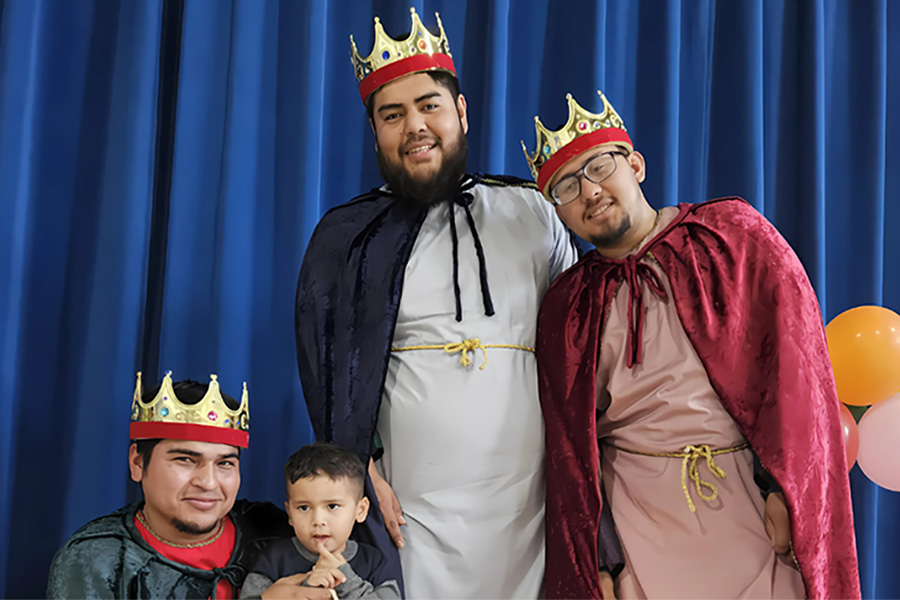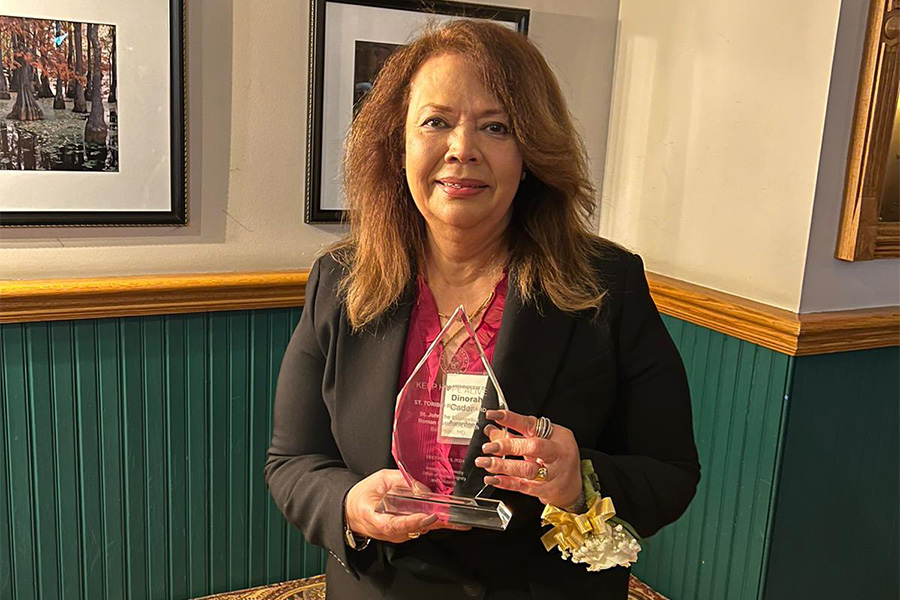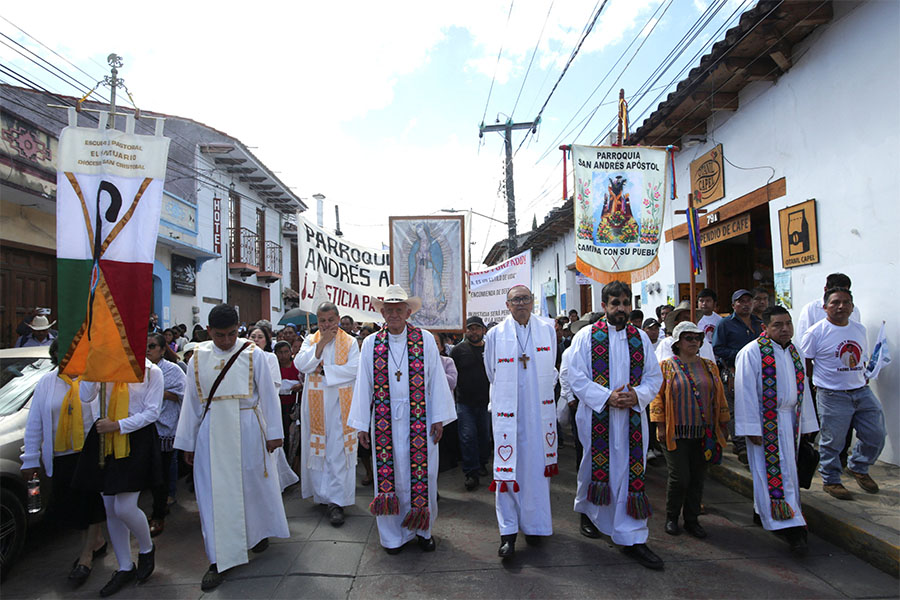Delegates from the Archdiocese of Baltimore were among those from 18 countries attending the Nov. 11-17 XII Continental Encuentro of Basic Ecclesial Communities (BECs) in Zaragoza, El Salvador.
Basic ecclesial communities are an ecclesial model that developed after the Second Vatican Council. They feature small communities of people who come together to meditate on Scripture, share and celebrate their faith, and work together to transform social realities, according to the BECs website.
Francisco Bosch, BECs continental coordinator of formation, told the Catholic Review the motto that marked the general theme of the most recent encuentro was, “BECs walk together from the peripheries for the liberation of the peoples.”

The encuentro is “a kind of collage of experiences where you can meet, see and listen to the different experiences of work and faith that are being lived,” he said.
Bosch said the objective of the continental encuentro, where the care for the environment and synodality were the main topics, “was to share and celebrate synodal experiences that recreate communion, autonomy and participation for the care and defense of the common home.
Lia Garcia, director of the Office of Hispanic Ministry for the Archdiocese of Baltimore, attended as a delegate along with Iveth Ramos from St. Francis de Sales in Abingdon and Robin Ayala from Sacred Heart in Glyndon.
This was the second time, after the Encuentro in 2020, that delegations from the United States participated in the event.
Garcia explained that BECs have a continental organization called the continental BEC and they are in charge of articulating, summarizing, taking notes of everything that was said at the encuentro and defining lines of action.
“We live very different realities from the realities that these communities in Latin America, in the Amazon, in Chile, in Ecuador live. So, what we do as BECs from the United States is listen, observe and apply what we see as feasible for our communities here in the United States,” Garcia said.
Garcia commented that U.S. BECs shared the experiences of immigrant people suffering uncertainty from changing political realities.
“There is a lot of fear in our community,” she said, “and then all that we have heard in the encuentro drives us to create a plan of action to, as small communities, continue to accompany us and continue to welcome and advocate for our brothers and sisters.”
Garcia said one of the main commitments of this encuentro is related to the formation process for reinforcing the identity of the small community.
“We try to provide the specific formation of the identity of the small communities and also what the BECs do in their communities every time they meet, which is the reading of the holy Scriptures,” she said.
Garcia anticipates that what was learned at the continental encuentro will be a solid foundation for the regional Baltimore and Washington encuentro of the BECs, which will be held in February 2025.
“We will be able to share these experiences of what we have lived in El Salvador,” she said.
For her, the most moving moment was the prayer on the first day, which, she explained, was the prelude to what they would experience the rest of the week.
“That prayer was with lanterns, with candles lit outside in nature, led by the Brazilian communities, in Portuguese, singing in Portuguese,” she said.
During a closing Mass at the crypt where St. Oscar Romero is buried, members of the Baltimore delegation brought forward hand-crafted butterflies to the altar. The offering symbolized migration of peoples.
Iveth Ramos participated as a delegate, and it was the first time she experienced this encuentro. She was moved by seeing how physical and psychological violence against women is sadly a reality shared in Latin American countries.
“It made me very sad to see that at this stage of life, there is still a lot of abuse and that women are not taken into account in many areas,” she said.
The lack of access to education and the lack of economic resources help perpetuate the different forms of violence against women in Latin America, said Ramos, a Honduran woman.
“We do not live the experiences that people live in our countries,” Ramos said. “Here, in the United States, there are more rights, and the law is applied more rigorously.”
According to the United Nations Economic Commission for Latin America and the Caribbean (ECLAC), at least 11 women were murdered every day for gendered-related reasons in Latin America and the Caribbean last year.
During the encuentro, men and women who were assassinated in the midst of their struggle for the defense of the environment or the rights of Indigenous communities were remembered and their legacies were discussed.
They included names such as Sister Dorothy Stang, a U.S. Sister of Notre Dame de Namur who was murdered in 2005 in the Amazon region of Brazil; Berta Cáceres and Juan Velasco, murdered in Honduras, and Francisco Tompico, assassinated in Guatemala this year.
Copyright © 2024 Catholic Review Media








